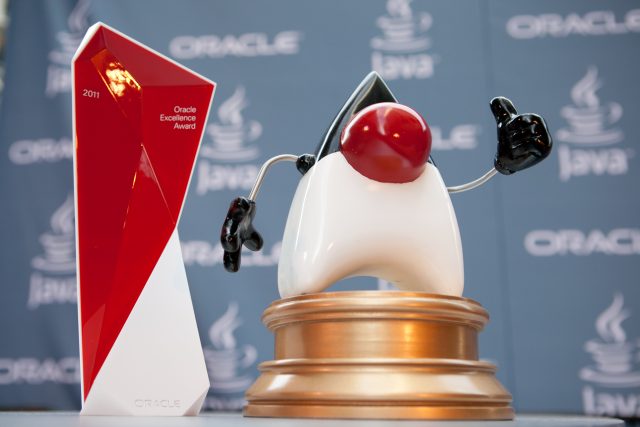
The long silence is apparently over. After an extended quiet period following last October’s Java One conference, Oracle has finally provided a hint about the company’s actual plans for Java EE, the enterprise framework for server-side Java applications. As Ars reported on July 1, development on Java EE projects by Oracle engineers has practically ceased since last fall, as the company pushed development resources to other projects—leaving members of the Java Community Process (JCP) executive committee and Java EE partners in the dark.
In response to Ars’ report, Mike Moeller, spokesperson for Oracle, issued the following statement via e-mail:
Oracle is committed to Java and has a very well defined proposal for the next version of the Java EE specification—Java EE 8—that will support developers are as they seek to build new applications that are designed using micro-services on large-scale distributed computing and container-based environments on the Cloud. Oracle is working closely with key partners in the Java community to finalize the proposal and will share the full details with the broader Java community at JavaOne in September.
When asked if “key partners” meant the JCP, the Java EE Expert Group, or specific industry partners in a parallel effort, an Oracle spokesperson replied that there was no parallel effort. The spokesperson suggested the changes Oracle was proposing would clearly need to be discussed within the Java community—both with the Java EE Expert group as well as more widely within the JCP—and that Oracle looks forward to feedback on the ideas.
Several developers in the Java community expressed a mixture of surprise and suspicion when told about Oracle’s stated plans. But most were optimistic about the news, because it hinted that Oracle was finally responding to the Java community’s demands for clarity—and perhaps to the petition drive by the group Java EE Guardians, which as of July 7 had collected the support of over 2,700 developers.
"It is a step in the right direction for Oracle to finally be making some kind of statement regarding Java EE," said Josh Juneau, a Java EE developer and author. "We must tread lightly, and continue forward via the Java EE Guardians initiative to help ensure that community is more closely involved in the future of Java EE." Juneau had some concerns about Oracle's announcement of a new direction and how that would affect work already done on Java EE 8. "We need to continue evangelizing and pushing each of the JSRs that are part of Java EE 8 to ensure that Oracle knows the importance of each," he said. "We do not want to see Java EE 8 short-changed by the scope being scaled back to exclude some of the JSRs. Furthermore, we do not want to see efforts shifted elsewhere to new JSRs or new areas of Java EE that we may not yet know about, leaving other JSRs behind."
Java EE Guardians spokesperson Reza Rahman expressed gratitude for Oracle’s response, which he said was “understandably short on details at the moment. The community should treat this as an opportunity to continue to constructively engage Oracle going forward. We need to all work together to continue to ensure the well-being of the Java and Java EE ecosystems. Hopefully the forward plans for Java EE 8 will be done completely in the open with broad-based collaboration including from the community.”
The focus mentioned by Oracle on micro-services and other cloud-focused applications for Java EE 8 is not much of a surprise, given Oracle’s own increased focus on cloud infrastructure, platform, and application services. The sudden derailment of work on Java EE 8 standards over the past nine months has reportedly been caused by Oracle’s own efforts to redouble its own cloud efforts, after its traditional software license sales declined for the first time ever in Oracle’s most recent fiscal year.
reader comments
57